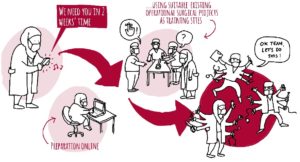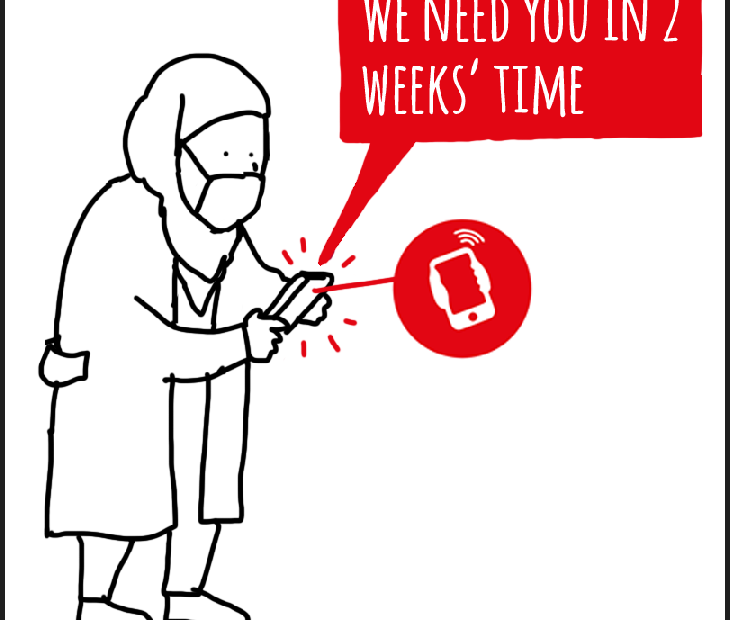Many of the best innovations leave you wondering how you ever managed without them. REDEE is set to be one of these, dramatically streamlining and speeding up the selection and deployment of staff to ICRC-supported hospitals.
When emergencies happen, one of the most pressing challenges is to identify staff with the right skills and deploy them to the field as quickly as possible.
A new tool called REDEE, standing for Red Employee Experience, aims to increase both the speed and efficiency of deployments.
“It means we can better identify the right person among the ICRC’s staff, including partner National Society colleagues, with the right competencies, and get them to the right place,” says Tonje Tingberg, project manager for the ICRC Health Unit’s Hospital and Surgical Capacity Building Project (HSCBP), who is piloting the tool.
Simple, fast, efficient
Currently, ICRC talent managers, who are responsible for staff deployments, tend to maintain their own individual databases of staff, skills and availability. They do this on spreadsheets and use a variety of methods such as WhatsApp, Signal, email or telephone to contact people when vacancies arise.
“The question was, how can we make this more efficient? How can we make it more fit for the future?” says Tingberg.
REDEE is built on a cloud-based personnel management tool that was developed by the Finnish company Molnix, founded by former Red Cross delegate Johan Ehnberg. It is being trialled among some 400 staff, a quarter of whom come from eight National Societies: Finland, Germany, Norway, Japan, Australia, Denmark, Canada, and Sweden.
The tool is a simple, efficient, stripped-down version of the Molnix personnel management software, and is designed for rapid communication and response, says project officer Yves Zogheb.
“The idea behind REDEE came from talent managers who identified the need for a better, more efficient and speedier system,” says Florence Sarret, ICRC change advisor. “It’s about keeping closer contact with staff pool members and being able to reach out quickly.”
Zogheb adds that it is indeed “a humanitarian tool, made by humanitarians, for humanitarians”.

Illustration by Virpi Oinonen
Mass alerts, rapid responses
So how does REDEE work?
Short profiles of participating staff are uploaded to the cloud-based database with simple tags, visible only to talent managers. These cover basic skills and competences, such as surgeon, nurse or hospital project manager, language abilities and nationality.
Staff update their availability and contact preferences on a regular basis so that managers can see who is available. When a posting alert is issued, those fitting the criteria are immediately informed, and can respond in a matter of seconds using the web or mobile app.
“You can send a mass alert out to hundreds of people and get responses in 30 or 40 seconds. Within a few minutes or hours, a hospital talent manager can have a full team, with the right competencies, ready to deploy,” says Tingberg.
“The talent managers had the feeling this would help their work, and we have made it happen.”

